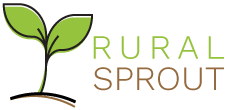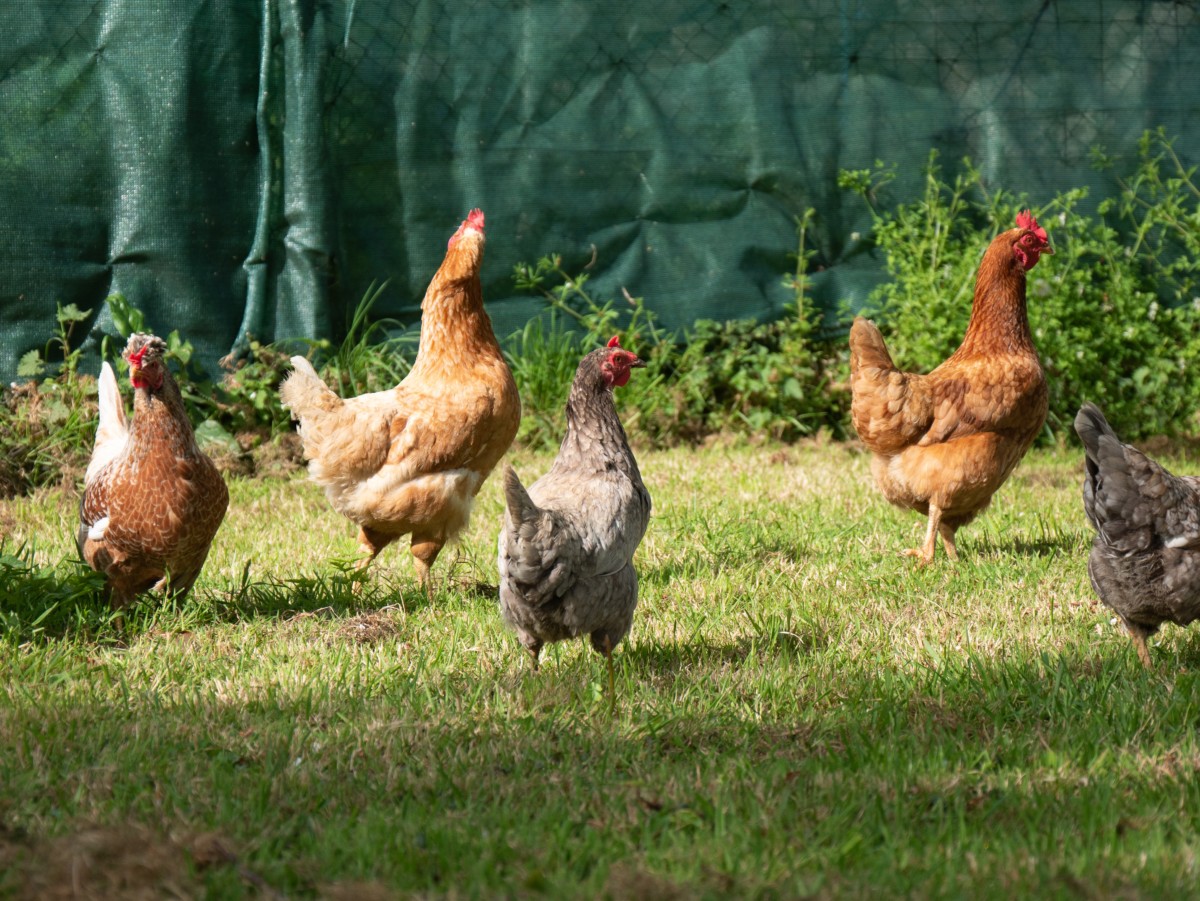
Raising chickens is fun, easy, and a great way to get fresh organic eggs right from your backyard. It doesn’t come without some challenges though, and one of the biggest is protecting your new pets-with-benefits from harm.
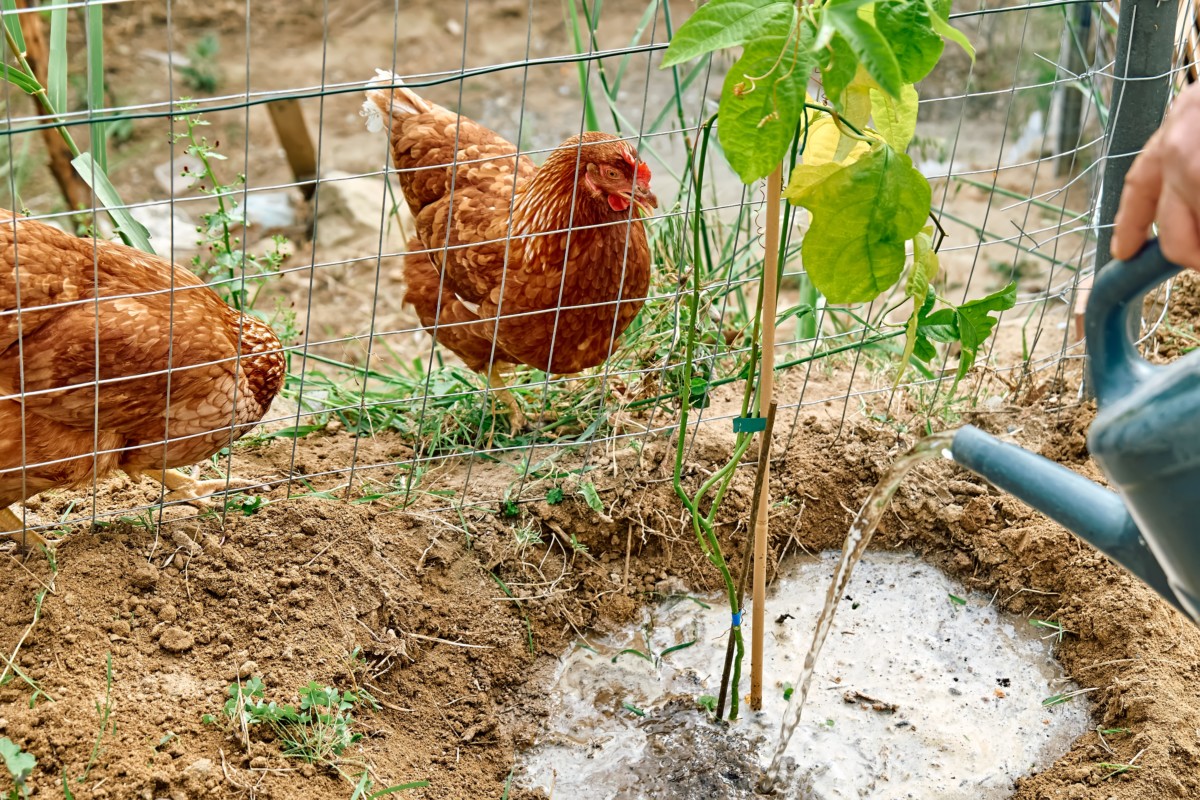
Chickens are omnivores and are very curious by nature, which can be a problem if you free-range your flock. There are plenty of plants that are toxic to chickens, and some of these are so popular you likely have them growing on your property already.
As a general rule of thumb, it’s a good idea not to plant these plants on your property if your chickens come out to free-range. However, you can protect the birds and the plants pretty easily by fencing off your gardens. You may even want to do this anyway, as chickens are notorious for digging through carefully crafted gardens and eating whatever they please.
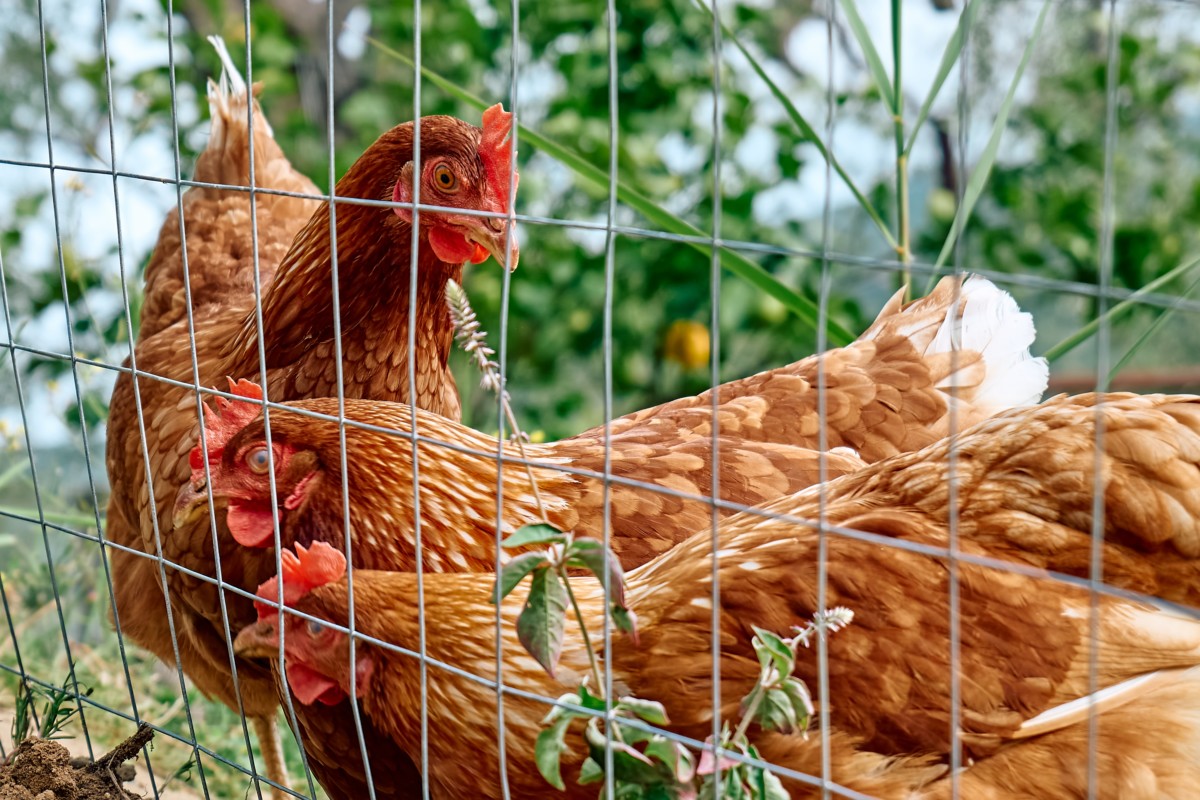
The good news is that most chickens have strong instincts as to what they should and shouldn’t eat. Some chickens will outright avoid plants that are toxic, and some will take a taste once and never try again.
Some chicken breeds are better at free-ranging than others, and will naturally avoid toxic plants. Heritage chicken breeds like the Dominique, Rhode Island Red, and Wyandotte tend to be more adept at free-ranging than some of the newer breeds available.
Even though chickens are likely to avoid toxic plants, there are times when they may be tempted. If you are feeding your chicken a toxic plant, they’re more likely to eat it, because you’re their trusted food provider. Chickens will also be more tempted to eat toxic plants if there aren’t many other options around, or if they’re incredibly hungry.
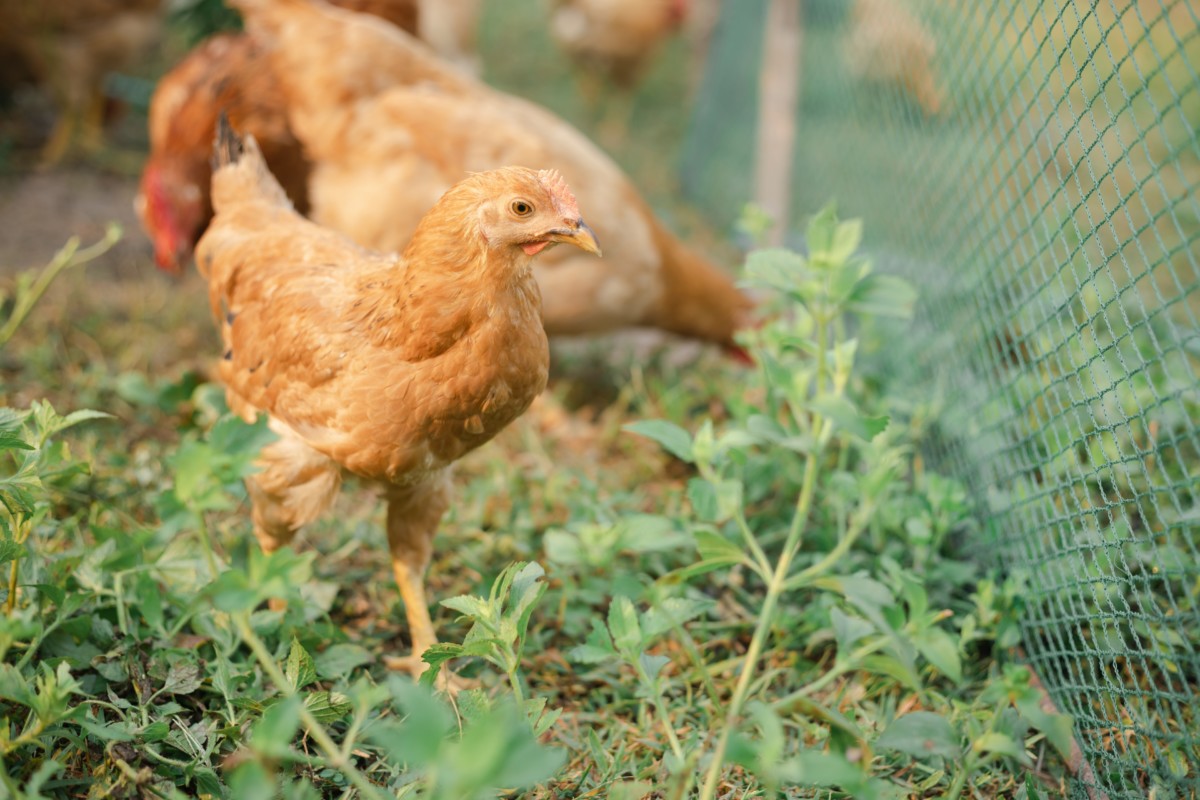
You can avoid all of this by providing good quality food for your flock and giving them plenty of space to free-range with a variety of safe plants to snack on.
Signs your chicken ate a toxic plant
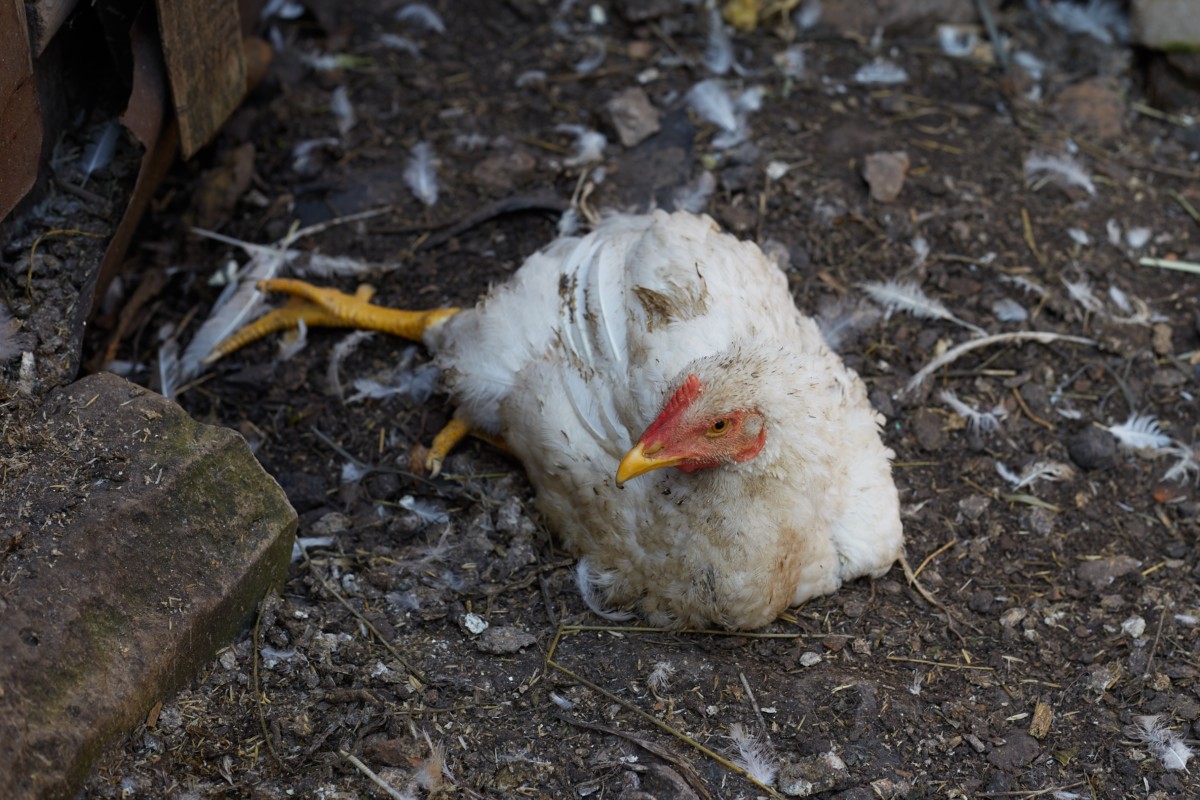
- Drooling
- Diarrhea
- Lethargy
- Head and tail drooping
- Tremors or seizures
- Trouble breathing
- Inability to stand
What to do if you suspect your chicken ate a toxic plant
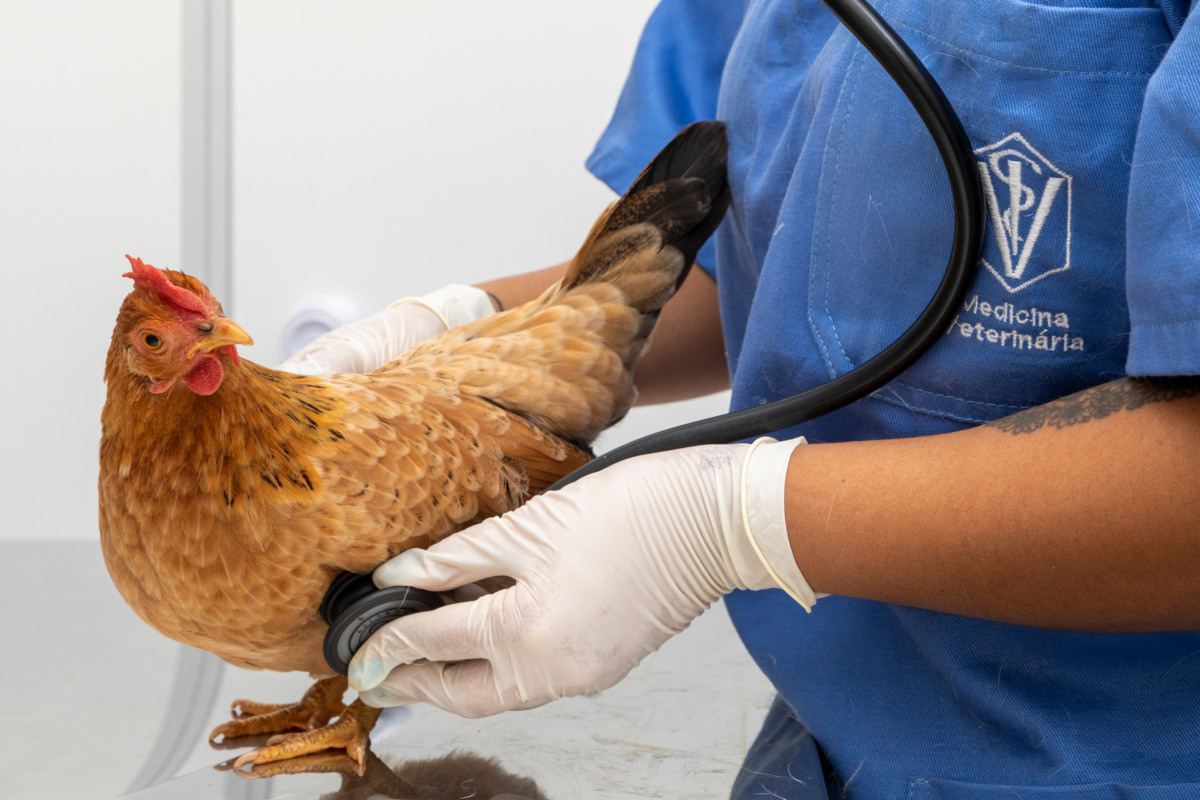
If your chicken is showing the signs above it’s possible they were poisoned by something they ate, it’s also possible something else is going on with their health. Either way, the best thing you can do is take the chicken to the vet and have them help you.
If you suspect or saw your chicken eating something toxic, take part of the plant with you to the vet, which can help them determine treatment.
8 Plants That Are Toxic to Chickens
If you already have some of these plants in your landscape you may not need to rush to pull them up right away, rather keep an eye on your chickens while they free-range and make sure they’re not feasting on your plants.
We’ve had plants like rhododendron and rhubarb on our property with free-ranging chickens for 10 years and never had an issue with the birds trying to eat those plants.
There are many plants that are toxic to chickens, we’re going to cover a few of the most commonly found ones in this article.
1. Foxglove
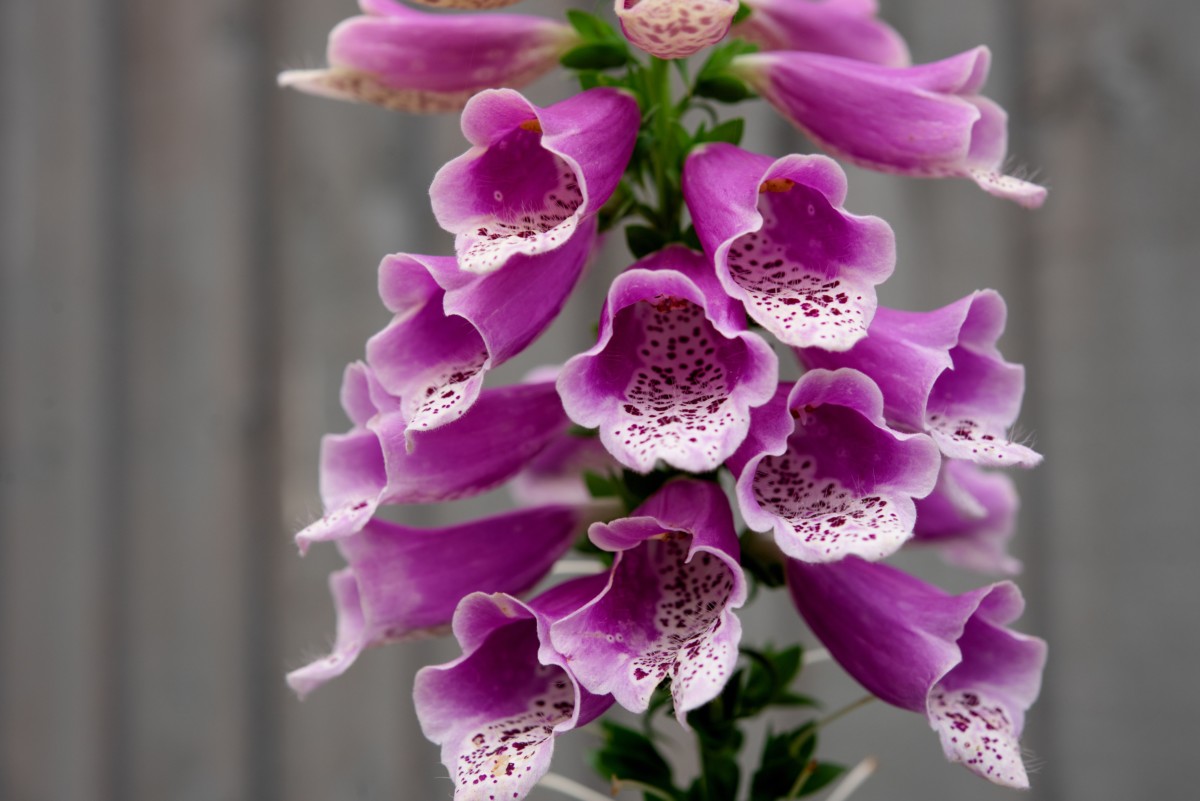
Foxgloves, while incredibly beautiful, are not good for chickens or other pets, and are even poisonous to people. Foxglove contains digitalis, which is a chemical that affects the heart, causing low blood pressure, slow heartbeat, and shock.
2. Daffodil
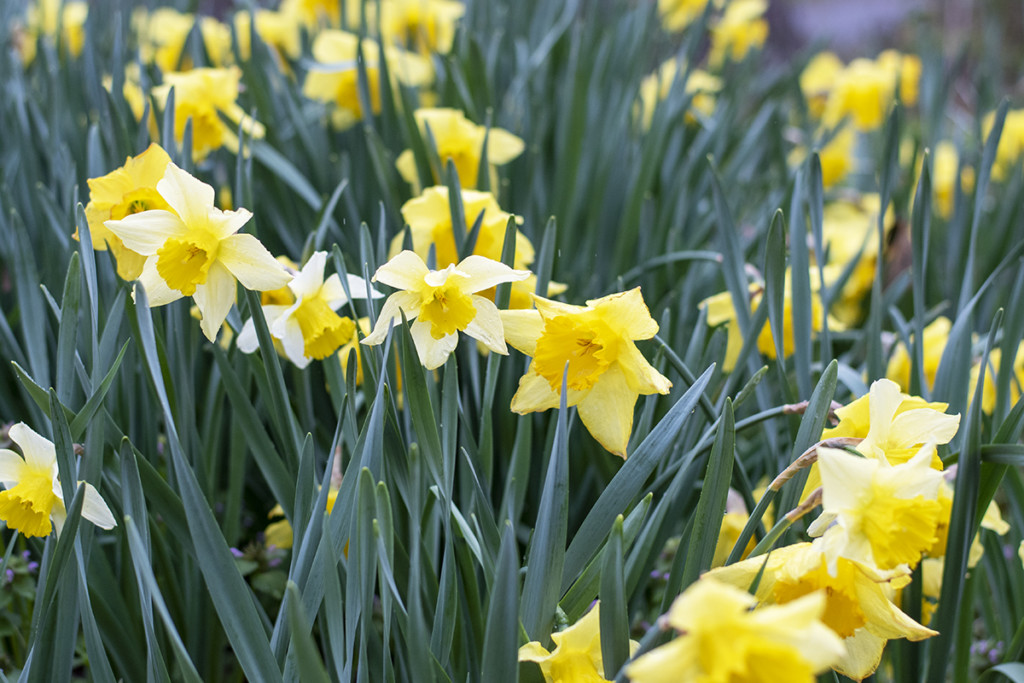
I think it’s safe to say that daffodil is one of the most commonly grown perennial flowers, some people even have it popping up like weeds on their property. If you have daffodils and you have free-ranging chickens, it’s likely you don’t need to worry.
The vast majority of chickens just aren’t interested in eating this plant. If you’re worried your chickens will taste the daffodils, try to keep them from free-ranging in the early spring when daffodils are one of the only green plants sprouting. Later in the spring, it’s safer to let them out because there are many more options to forage.
3. Azaleas
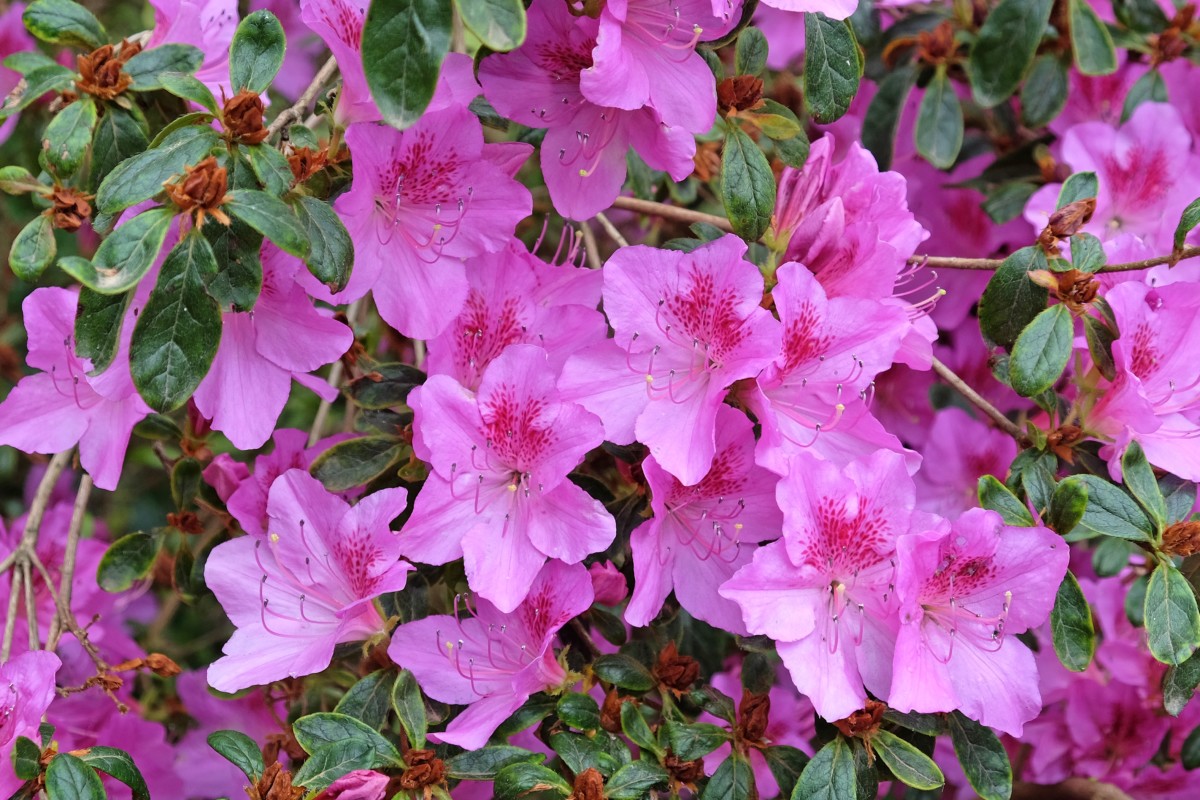
This beautiful plant packs quite the punch. Azaleas are considered poisonous if ingested. The azalea contains toxins called grayanotoxins which cause gastrointestinal issues, weakness, heart problems, and tremors.
If your chicken is drooling, has diarrhea, lethargy, or seizures, it may have eaten this toxic plant. Livestock, such as chickens, usually don’t fully recover from this sort of toxin unless it’s treated immediately by a veterinarian.
4. Rhododendron
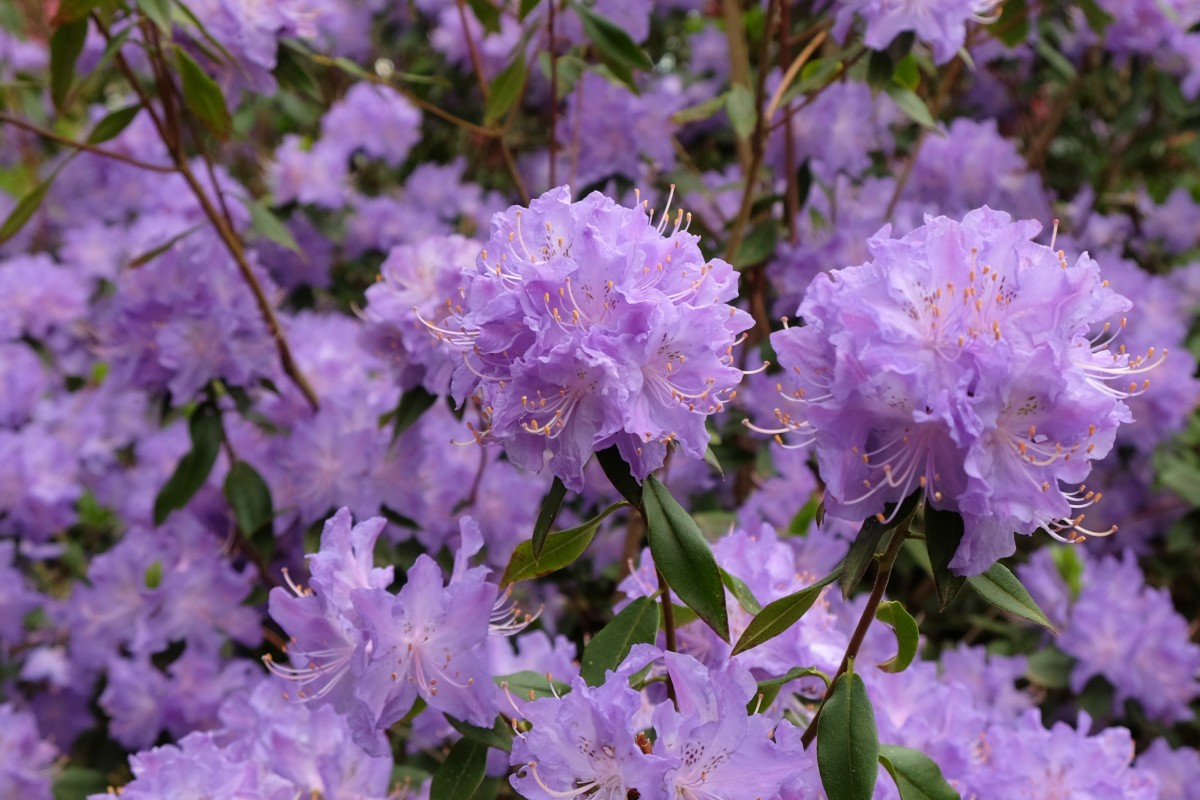
Rhododendron are poisonous for animals to eat, including chickens. With that said, this is a very common shrub to have in your yard. We had it in our yard with our free-ranging chickens for many years, and they never showed any interest in eating it. I’ve heard the same from many other chicken keepers. So this one, in my book, is not a huge concern, but if you’re worried you can always remove the plant or fence it off.
5. Lily of the Valley
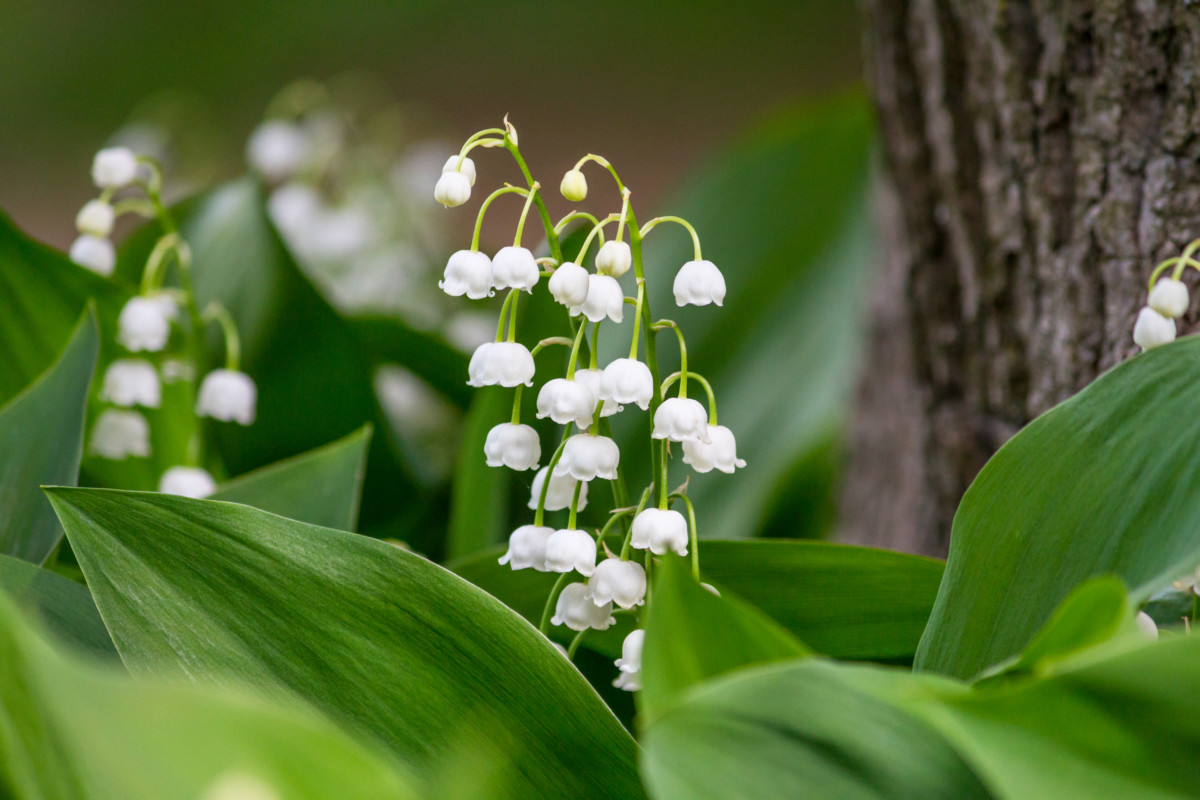
Lily of the Valley is toxic for not only chickens but pets and people as well. Although this plant is adorable and smells lovely, it’s not recommended for your landscape if you have chickens.
The plant contains cardiac glycosides which affect the pumping of the heart. This plant is so toxic it can even harm adults if it’s ingested. As little as two leaves eaten can prove fatal. This is one to stay away from for sure!
6. Beans
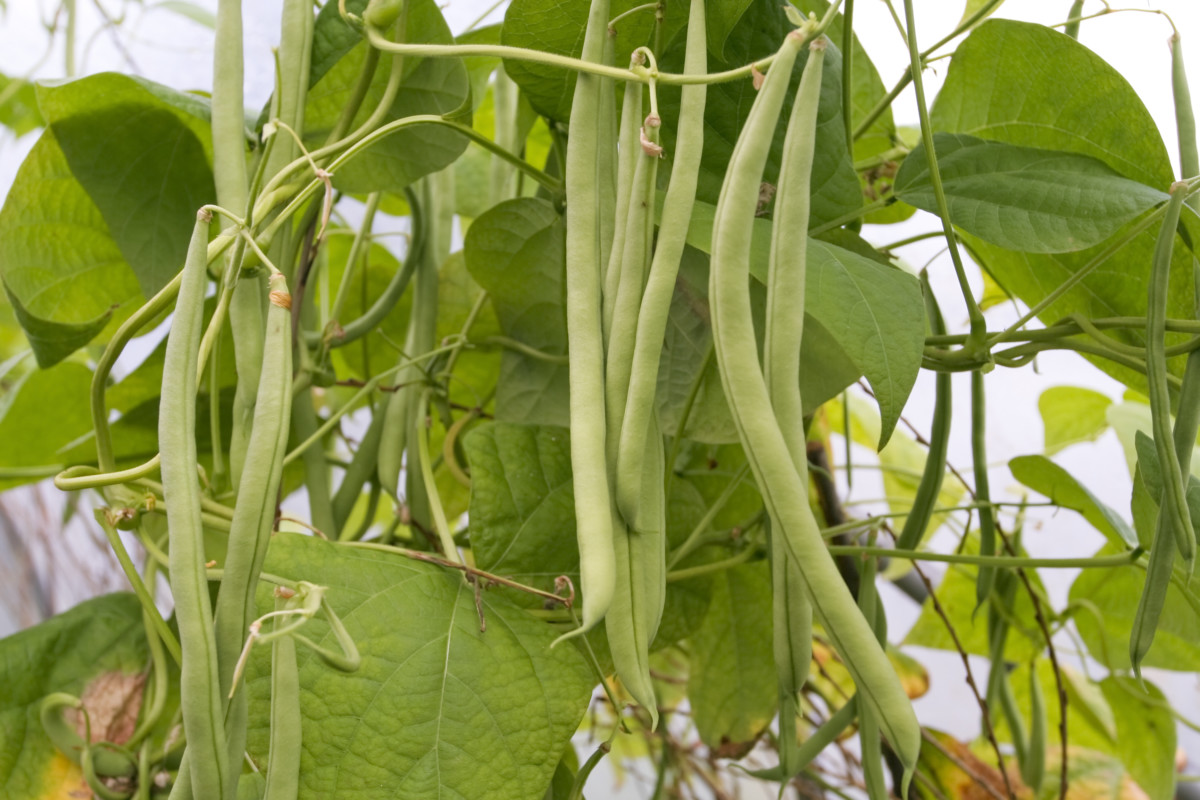
Cooked beans are perfectly fine for chickens to eat, however, raw uncooked beans or dried beans are not. Uncooked beans contain hemagglutinin, a toxin that will make your chickens sick. If you grow beans in your veggie garden it would be a good idea to keep them fenced off so your chickens aren’t tempted to eat them.
7. Ferns
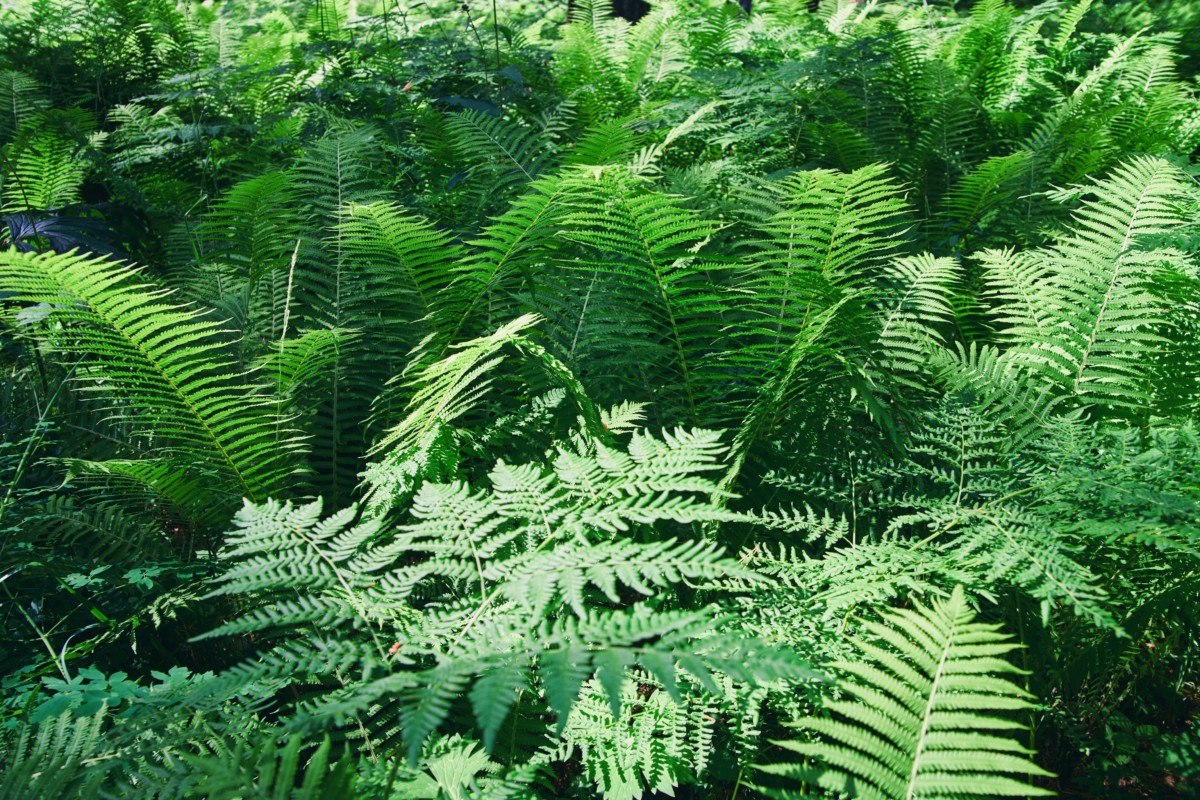
Let me preface this one by saying that we personally have tons of wild and cultivated ferns growing on our property and our free-range chickens don’t touch them. We’ve never had an issue and never needed to fence them off.
Bracken fern in particular can poison chickens if they eat a significant amount of it. Poisoned chickens will lose weight, suffer from anemia, and could have tremors. If you have this particular type of fern on your land it might be a good idea to remove it or keep your chickens away from it.
8. Rhubarb
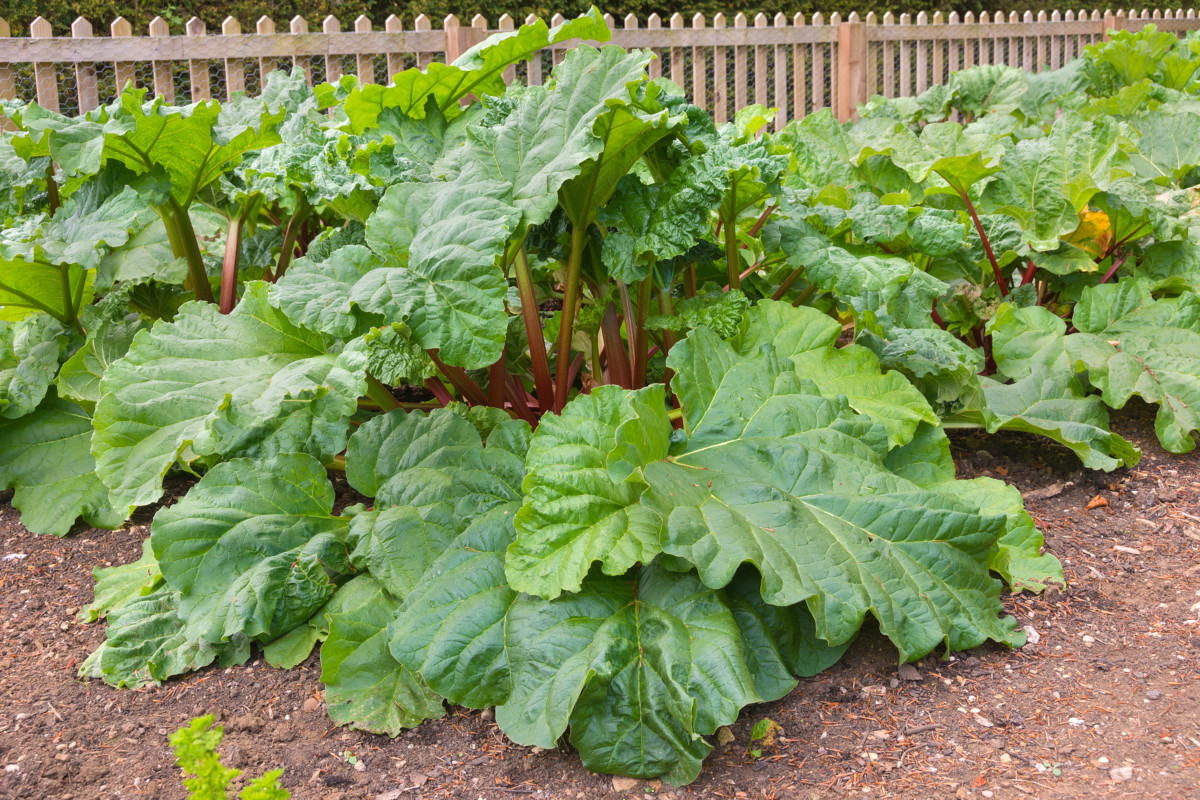
Rhubarb leaves are toxic for chickens and many other animals because they contain high levels of oxalic acid.
Many gardeners grow this perennial plant for its tart stem, which is used mostly in baked goods. In our experience chickens tend to avoid eating rhubarb, but they love to dig and scratch around it, which can harm the tender leaves. Best to keep this plant fenced off if you have free-ranging chickens.
9. Nightshades – Potatoes, Tomatoes, Eggplant, Peppers & More
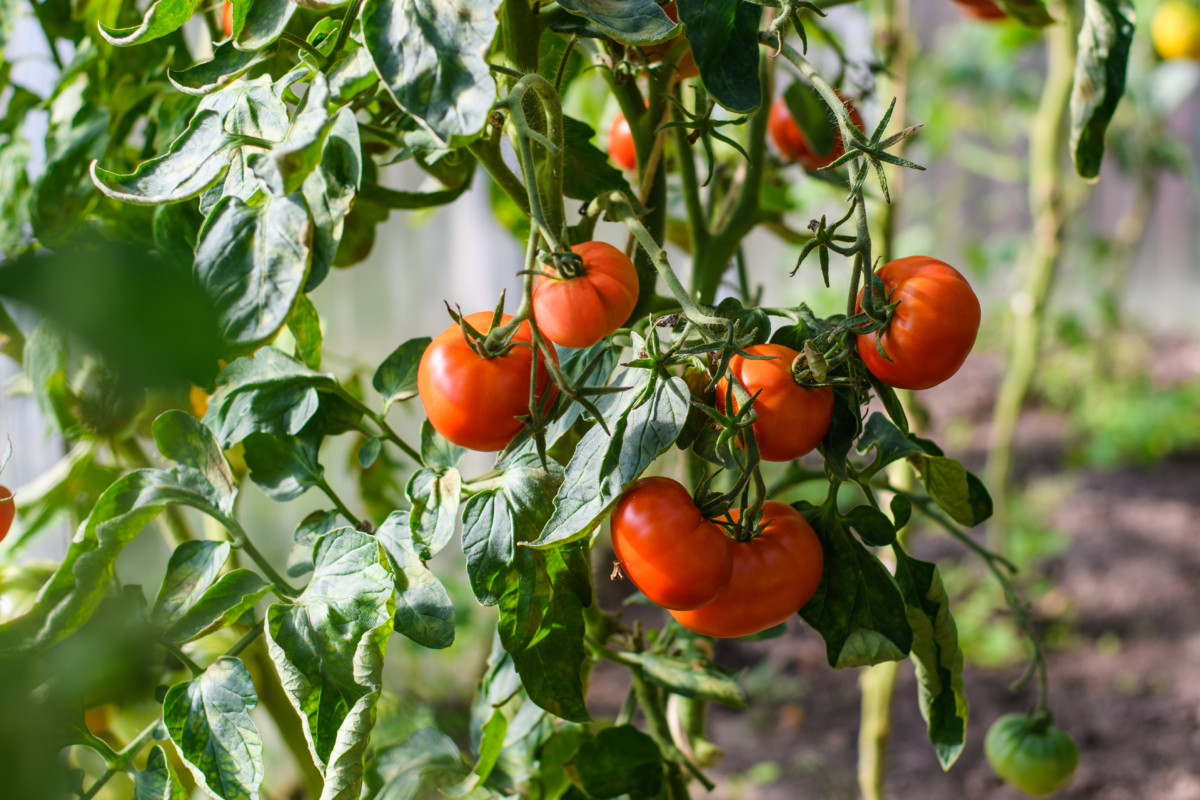
This is a tricky category because many people who raise chickens also grow a vegetable garden containing some of these plants. We certainly do, and you can too if you follow some basic rules.
Fence off your garden if you grow nightshade plants. Not only will it protect your chickens from eating what they’re not supposed to, but it will also protect your plants from your chickens and any other creatures that happen upon them.
Don’t allow your chickens to eat the leaves of nightshade plants or immature fruit. Green potatoes and green eggplant contain solanine, which is a toxin.
You can, however, feed your chickens ripe tomatoes, cooked potatoes, and cooked eggplant, just do so in moderation.
There are over 70 plants in the nightshade family, but these are the ones you’re most likely to have on your property.
- Tomatoes
- Potatoes
- Eggplant
- Peppers
- Goji Berry
- Belladonna (deadly nightshade)
- Pimento
- Garden Huckleberry
- Gooseberry
Other Toxins to Avoid
It’s not only toxic plants that you need to be aware of when you have free-ranging chickens. There are other hazards to keep track of too.
If you free-range your flock, never spray herbicides or pesticides on your lawn. These chemicals contain so many toxins that are deadly to birds. Free-ranging chickens eat lots of weeds, grasses, and insects that they find on your lawn, if you poison those plants and animals, you’re poisoning your chickens too. Not only is this not good for the health of your birds, but when you eat their eggs, you’re getting trace amounts of those chemicals too.
Be careful with things like non-organic fertilizer and grass seed. A lot of these are also full of chemicals that are not good for your birds. If you do lay down seed or fertilizer, it pays to wait a week or two before letting out your flock to free-range. At the very least you don’t want your chickens disrupting all your hard work on your landscape, but it will also protect them from chemicals too.
Luckily there is an abundance of organic options for treating your lawn and garden that will keep your landscape, chickens, and yourself safe and healthy!
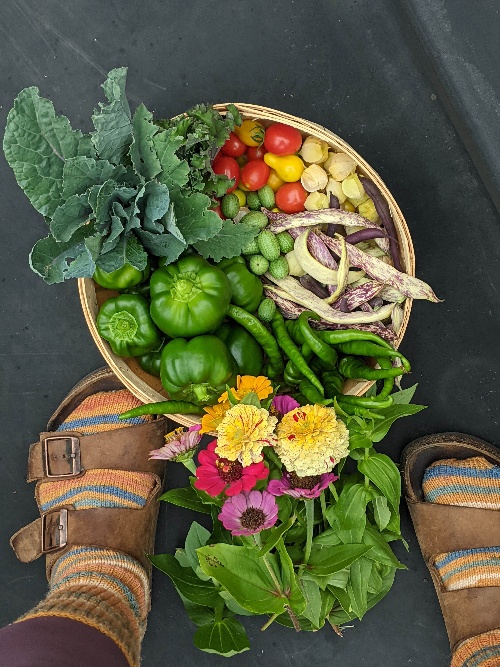
Get the famous Rural Sprout newsletter delivered to your inbox.
Join the 50,000+ gardeners who get timely gardening tutorials, tips and tasks delivered direct to their inbox.
